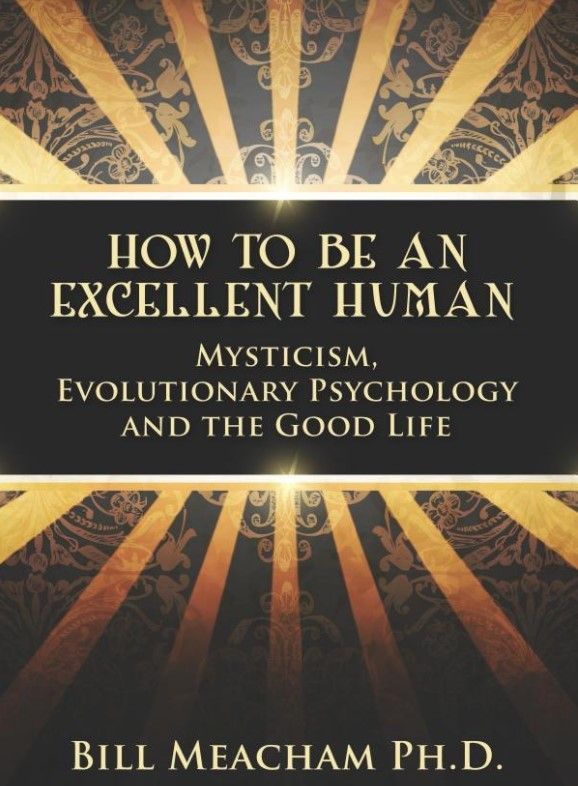Being Immortal
My essay “Fearing Death” examines whether we have any reason to fear being dead. That essay assumes that death will come to all of us eventually. But what if it didn’t? What if we could live forever? As it happens, a lively topic in current philosophy is whether it would be desirable to be immortal.(1) Is living forever something you would really, after some thought, want to do? In the jargon, is it choice-worthy?
I suppose that if, without thinking much about it, you fear being dead, then, sure, you would want to avoid that state. But the point of philosophy is to examine such unreflective attitudes to see if they really make sense. In order to do so, we sometimes look at counterfactuals, things that are not true but could be, to see what follows from our assumptions. The idea of immortality is a counterfactual. Obviously, nobody (that we know of) lives forever, although some live quite a long time. But what if we could? Would it be rational to choose to do so?
In order to answer the question, we need more details of what this hypothetical immortal life would be like. What if we lived forever but just kept getting sicker and more frail, eventually hanging on endlessly by a thread and in pain? Such a life would not be at all appealing. It would perhaps be more tempting if we could get “frozen” at a certain biological age and state of health.
Let’s imagine the best case: you get to pick your biological age and how healthy you will be. (Biological age is how old your body seems to be, no matter how old you really are chronologically. You could seem to be, say, 27 even after living hundreds or thousands of years.) So you choose an age at which your health and mental acuity were at their peak; 27 or so sounds good to me, but you get to choose. And, of course, even though you seem to be 27, you are still you on the inside with all your memories and knowledge of the world, which accumulate over time. And you choose your state of health, which most likely would be quite robust. You never get sick. Your bones are so strong as to be almost unbreakable, and if they did break, they would heal very rapidly. You are extremely fit; you can complete triathlons in record time with ease. And so forth. Given such a state, wouldn’t it be rational to live forever in it?
Oh, but wait, there are more things to consider. Are you the only immortal person, or are there others? Is everyone immortal, or only some of you? These scenarios are fodder for science fiction, of course, but they bear on the question. If you are the only immortal person you might get quite lonely after a while. You might have to hide your immortality in order to avoid being seen as a freak or a savior or a medical specimen. If you are part of a group, you would have company, but you might get sick and tired of the others. Or you might be endlessly anxious about your status in their eyes. If everyone became immortal and still bore children, the world would soon get seriously overpopulated.
And what sort of immortality would you choose to have? You could be biologically immortal, meaning you wouldn’t get sick and die but would still be vulnerable to severe trauma. You could die by getting shot or by drowning or by car crash or the like. In that case you might end up living a rather secluded and cautious, even fearful, life. Or you could choose absolute immortality, meaning you couldn’t be destroyed at all; you would be invulnerable. That would present another challenge: how to stay interested in life. After a while you might be so bored that you’d rather not live anymore. But you wouldn’t be able to kill yourself, so you would be consigned to an eternal hell of ennui and despair. But on another hand, if we assume that the universe is infinite and in constant motion, then there would always be the possibility of discovering something new. Hence you would not be bored. Maybe such a life would be worth living after all.
None of these considerations so far take into account the possibility of an afterlife, some kind of continued existence after the death of the physical body. (I am convinced there is an afterlife, but that’s another story. See my essay “An Impeccable Death.”) If you suspect that after your reprobate life you would end up in hell, you might well want to stay here. But if you believe, as many do, that this life is a vale of tears, full of suffering, you might view with horror the prospect of a sentence of endless imprisonment. If your life here is pretty good, you might want to stay. If it ain’t broke, don’t fix it, as we say in Texas. Or, even if your life here is good, you might have FOMO (fear of missing out) and be very curious about what is on the other side.
All this speculation may well seem to be irrelevant and silly, as we don’t actually expect to live forever, nor do we have the ability to choose the parameters of our immortal life. What’s the point, right? But there is a point. Actually there are two of them: to clarify the concept of a good life and to discover or decide how to live our own life.
Much of contemporary philosophy is concerned with clarifying the meaning and implications of concepts. Philosophers have been doing this ever since Socrates asked Laches what courage is.(2) The concept at issue here is the nature of a good life. By examining the counterfactual idea that we might live forever, we get clearer on what goodness is as it pertains to living. We find out what makes something, in this case a life, rationally desirable or worthwhile. But why do we want to know that? Well, one answer is that philosophers are curious folks and seem to enjoy this sort of analysis. But more deeply it’s not just goodness and life in the abstract that interest us, but our own lives.
We have a personal interest in what makes a good life, because we have to live one. That is, we have to live our life, and most of us would greatly prefer that it be one that is fulfilling and happy. The word “philosophy” comes from two Greek words, philia and sophia, that mean affection for wisdom. Wisdom is not just knowledge; it is knowledge of a particular sort, knowledge of how to live well.
So what can we learn about living well from this discussion of immortality? Each of us needs to answer for ourself, but some things seem clear. If you were to live forever, most likely you would prefer to be robustly healthy, of course, and you would want to keep your mental acuity. But would you prefer the company of other immortals or would you prefer the endless variety of newcomers being born, maturing and eventually dying? Or would you rather live alone? Whom to live with may be a personal preference, but you would probably not rather live alone, as the only thing that is capable of fully engaging the interest of a human mind is another human mind.
Regardless of whom you choose to be with, there is one person who would always be there: you yourself. What kind of person would you want to be if you had to live with yourself forever? I expect you’d want to be tranquil and content, not consumed with rage, hatred, jealousy, fear or any other afflictive emotion. You would want your internal state to be peaceful and free from sorrow. You would want to be pleased with how you have lived so far, happy with your current state, and looking forward to whatever comes next. You would want to live with beauty and harmony.
Now, you don’t have to hope to be immortal or wait until you are older than anyone else to want to find out how to live well. I’ve written a whole book on the subject, and I refer you to it rather than trying to summarize it here.(3) I just want to note one thing that is true of all humans and has a bearing on the issue: that we always find ourselves embedded in a world, situated in an environment. Our world is a web of interconnected processes, constantly changing, and each of us is one of them. In order to create beauty and harmony within our experience, we must create beauty and harmony, to the best of our ability, in the world because the world is the content of our experience.
To put it another way, everything, including every person, is related to everything else. In that case, it makes sense to try to maximize the good in all situations and to maximize what is good for all concerned. As you maximize the good of everybody and everything in the environment, you thereby promote your own health as well. (By “you” I mean everyone, each of us individually; and by “environment” I mean everything that surrounds us: people, animals, plants, non-living things, the earth, the atmosphere, the water, etc. Everything.)
If you were immortal, you would want to do that. So why wait? Start now.
Notes
(1) A good place to start is with Fischer and Mitchell-Yellin, “Immortality and Boredom.” Read it for an overview of some of the issues, then follow the citations.
(2) Plato, “Laches.”
(3) Meacham, How To Be An Excellent Human.
References
Fischer, John Martin, and Benjamin Mitchell-Yellin. “Immortality and Boredom.” The Journal of Ethics (2014) 18:353–372. Available online at https://alaw003.wixsite.com/johnmartinfischer as of 16 April 2020
Meacham, Bill. How To Be An Excellent Human: Mysticism, Evolutionary Psychology and the Good Life. Austin: Earth Harmony, 2013. Available at https://bmeacham.com/ExcellentHumanDownload.htm.
Plato, “Laches.” Tr. Benjamin Jowett. Online publication http://classics.mit.edu/Plato/laches.html as of 18 April 2020.

How To Be An Excellent Human
Mysticism, Evolutionary Psychology and the Good Life by Bill Beacham, Ph.D.

